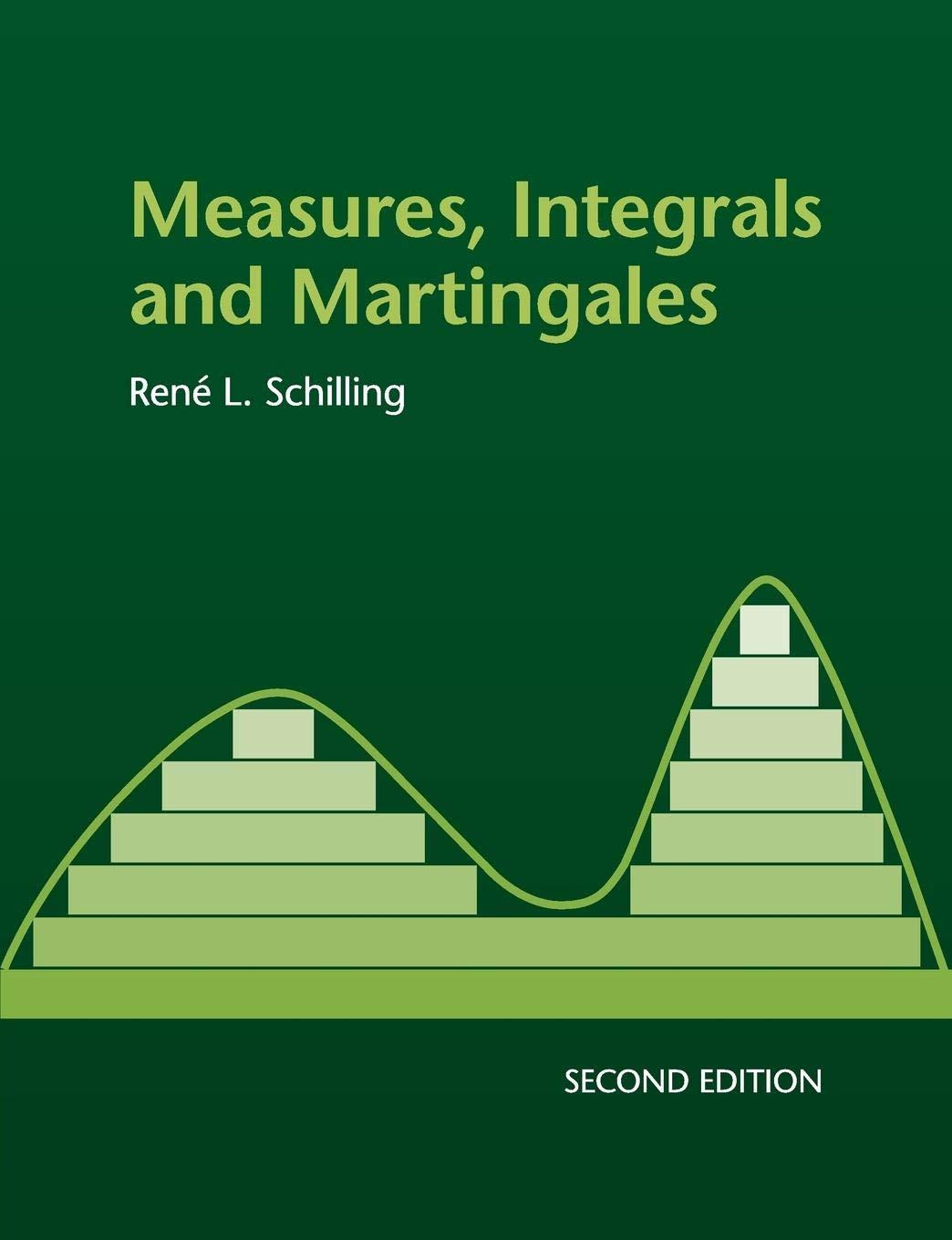Kernels. Let ((X, mathscr{A}, mu)) be a measure space. A map (N: X times mathscr{A} ightarrow[0, infty])
Question:
Kernels. Let \((X, \mathscr{A}, \mu)\) be a measure space. A map \(N: X \times \mathscr{A} ightarrow[0, \infty]\) is called a kernel if
\[
\begin{array}{rlrl}
A & \mapsto N(x, A) & & \text { is a measure for every } x \in X, \\
x \mapsto N(x, A) & & \text { is a measurable function for every } A \in \mathscr{A} .
\end{array}
\]
(i) Show that \(\mathscr{A} i A \mapsto \mu N(A):=\int N(x, A) \mu(d x)\) is a measure on \((X, \mathscr{A})\).
(ii) For \(u \in \mathcal{M}^{+}(\mathscr{A})\) define \(N u(x):=\int u(y) N(x, d y)\). Show that \(u \mapsto N u\) is additive, positive homogeneous and \(N u(\cdot) \in \mathcal{M}^{+}(\mathscr{A})\).
(iii) Let \(\mu N\) be the measure introduced in (i). Show that \(\int u d(\mu N)=\int N u d \mu\) for all \(u \in \mathcal{M}^{+}(\mathscr{A})\).
[ consider in each part of this problem first indicator functions \(u=\mathbb{1}_{A}\), then simple functions \(u \in \mathcal{E}^{+}(\mathscr{A})\), and then approximate \(u \in \mathcal{M}^{+}(\mathscr{A})\) by simple functions using Theorems 8.8 and 9.6.]
Step by Step Answer:






